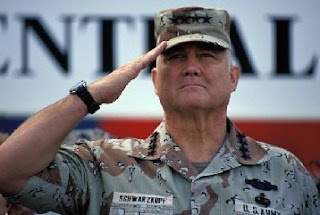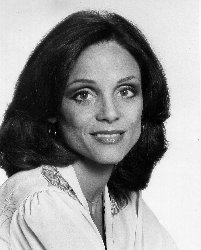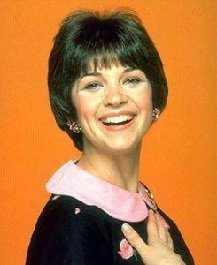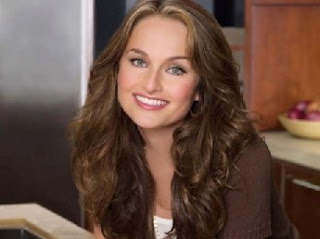Good 61º dark cloudy morning.
Picture of the Day....

Because today is the celebration of life service for my friend Dee Yellin, I'm posting her obituary. She was an amazing woman!! She is missed by all who knew her. I am not attending the service because of this virus and crowds are not where I want to be.
Mrs. Delores Anne Yellin, 79, of Grants Pass went home to be with the Lord on Friday, July 31, 2020, at her home in Grants Pass.
Delores was born in Victor, Montana to Lloyd and Bennie Smith. Later, when she was 11, the family moved to Oregon, settling in Cave Junction. She graduated from high school in Cave Junction, Oregon. After high school she moved to Southern California and became co-owner of an aircraft maintenance facility, Blue Sky Aviation, at Van Nuys Airport. She was a Commercial Pilot, certified to fly single and multi-engine airplanes.
On November 11,1990, Delores married Dale Yellin in Bullhead City, Nevada. They lived in San Dimas, CA and in December of 2005 they relocated to Grants Pass, Oregon.


She was preceded in death by her parents Bennie and Lloyd Smith.
She is survived by her husband, Dale Yellin, her two daughters, Lori Brown and Danlle Bayne, her son Kurt Simington, her stepson, Jeffrey Yellin, and her four brothers, Rudy (Faith) Smith, Darrel (Carol) Smith, Larry (Lynn) Smith, and Don Smith.
A Celebration of Life will be held at Jerome Prairie Bible Church in Grants Pass on Saturday August 22nd at 1 PM. A reception, with refreshments, will follow immediately after the service.
Arrangements handled with Stephens Family Chapel.
This was "the girls" 5 years ago, having lunch....
at The Haul in GP..... L-R Dee Yellin, Jennifer Murphy, Nancy Perry & me, and Jeannie Patterson....
Our St. Paddy's Day lunch at Taprock last year.... L-R Jeannie Patterson, Dee, me, Karen Beartschiger, her husband Herman, Dale Yellin, and Bill Patterson....
Interesting about air conditioning...
Willis Haviland Carrier (November 26, 1876 – October 7, 1950) was an American engineer, best known for inventing modern air conditioning.
Carrier invented the first electrical air conditioning unit in 1902.
Carrier invented the first electrical air conditioning unit in 1902.
In 1915, he founded Carrier Corporation, a company specializing in the manufacture and distribution of heating, ventilation, and air conditioning (HVAC) systems.
In Buffalo, New York, on July 17, 1902, in response to an air quality problem experienced at the Sackett-Wilhelms Lithographing & Publishing Company of Brooklyn, Willis Carrier submitted drawings for what became recognized as the world's first modern air conditioning system. The 1902 installation marked the birth of air conditioning because of the addition of humidity control, which led to the recognition by authorities in the field that A/C must perform four basic functions:
- control temperature
- control humidity
- control air circulation and ventilation
- cleanse the air
After several more years of refinement and field testing, on January 2, 1906, Carrier was granted U.S. Patent 808,897 for an Apparatus for Treating Air, the world's first spray-type air conditioning equipment. It was designed to humidify or dehumidify air, heating water for the first function and cooling it for the second.
With the onset of World War I in late 1914, the Buffalo Forge Company, where Carrier had been employed for 12 years, decided to confine its activities entirely to manufacturing. The result was that seven young engineers pooled together their life savings of $32,600 to form the Carrier Engineering Corporation in New York on June 26, 1915. The seven were Carrier, J. Irvine Lyle, Edward T. Murphy, L. Logan Lewis, Ernest T. Lyle, Frank Sanna, Alfred E. Stacey, Jr., and Edmund P. Heckel.
Despite the development of the centrifugal refrigeration machine and the commercial growth of air conditioning to cool buildings in the 1920s, the company ran into financial difficulties, as did many others, as a result of the Wall Street Crash in October 1929. In 1930, Carrier Engineering Corp. merged with Brunswick-Kroeschell Company and York Heating & Ventilating Corporation to form the Carrier Corporation, with Willis Carrier named Chairman of the Board.
The Great Depression slowed residential and commercial use of air conditioning. The company spread out over four cities in New Jersey and Pennsylvania until Carrier consolidated and moved his company to Syracuse, New York, in 1937. The company became one of the largest employers in central New York.
Willis Carrier's igloo in the 1939 New York World's Fair gave visitors a glimpse into the future of air conditioning, but before it became popular, World War II began.
During the post-war economic boom of the 1950s, air conditioning began its tremendous growth in popularity. Today, air-conditioning and HVAC is a staple in many American homes.
During the post-war economic boom of the 1950s, air conditioning began its tremendous growth in popularity. Today, air-conditioning and HVAC is a staple in many American homes.
Here's a bite-sized idea for your next garden party or backyard bash. These Cucumber Ranch Bites are easy to throw-together at a moment's notice, 'cause there's no cooking involved. The homemade, creamy, ranch topping really complements the fresh-from-the-garden ingredients.
- 2 cucumbers
- 1 (8-ounce) package cream cheese, softened
- 3 tablespoons mayonnaise
- 1 (0.4-ounce) packet ranch dressing mix
- 2 tablespoons chopped fresh chives, divided
- 5 cherry tomatoes, each cut into 6 wedges
- Using a fork, press down the entire length of cucumbers on all sides, creating ridges. Cut cucumbers into 1/2-inch slices and place on platter.
- In a medium bowl with an electric mixer, beat cream cheese, mayonnaise, dressing mix, and 1 tablespoon chives until smooth. Place mixture into pastry bag and pipe onto each cucumber slice.
- Garnish each with a tomato wedge and sprinkle with remaining chives. Refrigerate until ready to serve.
***If you don't have a pastry bag, no worries! Just place your mixture in a small resealable plastic bag, snip off one corner, and pipe away!
Historically this date.....
1851 – The first America's Cup is won by the yacht America.
1902 – Theodore Roosevelt becomes the first President of the United States to ride in an automobile.
1963 – American Joe Walker in an X-15 test plane reaches an altitude of 106 km (66 mi).
1989 – Nolan Ryan strikes out Rickey Henderson to become the first Major League Baseball pitcher to record 5,000 strikeouts.
1996 – Bill Clinton signs welfare reform into law, representing major shift in US welfare policy
2007 – The Texas Rangers rout the Baltimore Orioles 30–3, the most runs scored by a team in modern MLB history.
And births this date include..
1934 – Norman Schwarzkopf, Jr., American general (d. 2012)
1939 – Valerie Harper, American actress (d.2019)
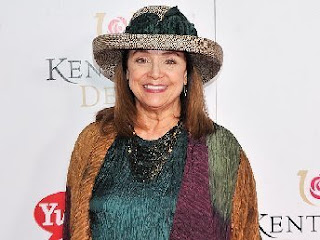
1947 – Cindy Williams, American actress
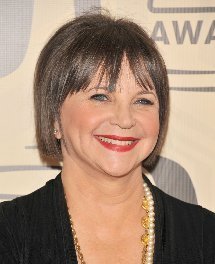
1970 – Giada De Laurentiis, Italian-American chef and author
.... a real beauty who can cook like nobody's business!
By the way, the new Facebook set up sucks. I don't like it at all!!!
Last night on our local NBC Channel 5 news, Jack Church put my photo on of "flying saucer" clouds I sent him. They are actually called lenticular clouds.........
All I know. Nuff said. Happy Saturday. Ciao.
xo Sue Mom Bobo
Wiggle a loose tooth and maybe the tooth fairy will collect it on August 22nd during National Tooth Fairy Day. Since the day is celebrated twice a year, recognize the tooth fairy again on February 28th.
This childhood favorite evolved with a group of healthcare fairies during the mid-1920s. From bath fairies to Fairy Wand Tooth Whitener, they encouraged kids through a wave of advertisements and health classes. These ads and classes spoke to children about eating their veggies, brushing their teeth, and getting fresh air.
In 1927, Esther Watkins Arnold brought the tooth fairy to life in an eight-page playlet. She named the playlet The Tooth Fairy. At the same time, Sir Arthur Conan Doyle published photographs of two girls surrounded by “verified” fairies. He claimed that fairies and gnomes existed and the pictures supplied the photographic evidence.
The following year, Arnold’s play began performing. Children, primed with vivid imaginations, placed their freshly lost teeth under their pillows at night. The anticipation of a visit from the tooth fairy lives on today.
Over the years, the tooth fairy theme varied. In 1942, columnist Bob Balfe wrote in the Palm Beach Post about the tooth fairy. He gave his children War Stamps to put in their books when the lost a tooth. This alternative became popular during a time when giving to the war effort was a motivating factor.
Today, the tooth fairy jingles much less than ever. The average payout for a lost tooth ranges from $3 to $4. However, if Dad is on duty or if the tooth disappears during the night with no time break a large bill, the amounts climb higher.












